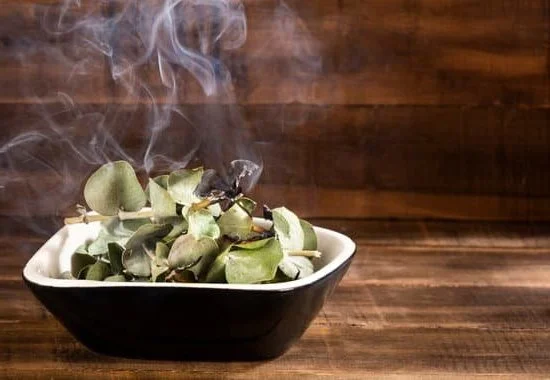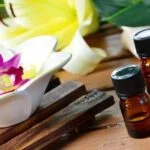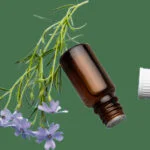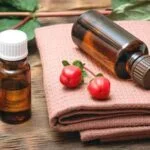Are homeopathic remedies another form of aromatherapy from herbs? This question has sparked debates in the realm of alternative medicine. The concept of homeopathic remedies and aromatherapy from herbs continues to pique the interest of those seeking natural healing methods. In this article, we will delve into the understanding, exploration, comparison, effectiveness, and controversy surrounding these two practices.
Homeopathic remedies are based on the principle that “like cures like,” using highly diluted substances to stimulate the body’s natural healing abilities. On the other hand, aromatherapy from herbs involves the use of plant extracts for their therapeutic properties through inhalation or topical application. Both practices share a common thread in utilizing natural elements for wellness.
Understanding how homeopathic remedies are made and how they work is essential to grasping their efficacy. Similarly, exploring the origins and uses of aromatherapy from herbs provides insight into its application in modern medicine. As we navigate through these topics, we will uncover similarities and differences between the two practices, shedding light on their respective benefits and limitations.
As we embark on this journey of discovery, it is important to examine the scientific evidence and research supporting both homeopathic remedies and aromatherapy from herbs. Evaluating their effectiveness will provide valuable insights for individuals seeking alternative treatment options. Ultimately, choosing between these approaches may depend on various factors that we will explore further in this article.
Understanding Homeopathic Remedies
Homeopathic remedies have been used for centuries as a form of alternative medicine. This approach is based on the concept that “like cures like,” meaning that a substance that causes symptoms in a healthy person can be used to treat similar symptoms in someone who is sick. Homeopathic remedies are made through a process of dilution and succussion, which involves vigorous shaking. These remedies are believed to work by stimulating the body’s natural healing processes.
Homeopathic remedies are created using a process known as potentization, which involves diluting an active ingredient in water or alcohol and then vigorously shaking the solution. The more diluted the remedy, the stronger its potency is believed to be. This process is thought to release the “vital energy” of the substance, making it effective in treating various ailments.
How Homeopathic Remedies Work:
According to homeopathy principles, these remedies work by triggering the body’s self-regulating mechanisms to promote healing. It is thought that when a homeopathic remedy is ingested or applied topically, it stimulates the body’s vital force to restore balance and health. While there is limited scientific evidence supporting its effectiveness, many individuals believe in the benefits of homeopathic treatments and have reported positive outcomes from using them.
| Homeopathic Remedies | Aromatherapy From Herbs |
|---|---|
| Based on “like cures like” principle | Uses essential oils extracted from herbs for therapeutic purposes |
| Potentization process involving dilution and succussion | Uses essential oils through inhalation, topical application or ingestion |
| Stimulates the body’s self-regulating mechanisms | Aids relaxation and emotional well-being through scent stimulation |
Exploring Aromatherapy From Herbs
Aromatherapy, also known as essential oil therapy, is a form of alternative medicine that utilizes the aroma compounds from a variety of plants for therapeutic purposes. The practice of using aromatic plant extracts dates back thousands of years to ancient civilizations such as the Chinese, Indians, Egyptians, Greeks, and Romans. These cultures recognized the healing properties of herbs and incorporated them into various aspects of their lives, including religious rituals, food preparation, and medicinal treatments.
In modern times, aromatherapy has gained popularity as a complementary therapy to traditional medicine. Essential oils are extracted from different parts of plants, including flowers, leaves, stems, bark, and roots. These oils can be used in different ways such as inhalation, topical application to the skin or through massage.
Each essential oil is believed to have specific therapeutic effects on the body and mind. For example, lavender oil is commonly used for its calming and relaxing properties, while peppermint oil is often used for its invigorating and energizing effects.
The use of aromatherapy has expanded beyond just relaxation and stress relief to include various medical applications. Essential oils are now being researched for their potential benefits in treating conditions such as anxiety, depression, insomnia, pain management, and even certain respiratory disorders. While more research is needed to fully understand the efficacy of aromatherapy in modern medicine, many healthcare providers are incorporating it into their treatment plans for patients seeking alternative therapies.
A Comparison of Homeopathic Remedies and Aromatherapy From Herbs
Homeopathic remedies and aromatherapy from herbs are two alternative medicine practices that are often thought of as similar, but they have distinct differences in their principles, methods of application, and the substances used. Homeopathy involves using highly diluted substances to trigger the body’s natural healing processes, while aromatherapy utilizes essential oils extracted from plants to promote physical and emotional well-being.
In terms of similarities, both homeopathic remedies and aromatherapy from herbs are considered natural forms of healing that aim to address various physical and mental health issues holistically. They also rely on substances derived from nature, such as plants and minerals, as the basis for their treatments. Additionally, proponents of both practices believe in the importance of individualized approaches to treatment based on a person’s specific symptoms and constitution.
On the other hand, there are notable differences between homeopathic remedies and aromatherapy from herbs. For example, homeopathic remedies are prepared through a process of dilution and succussion (vigorous shaking), where a small amount of the original substance is mixed with water or alcohol multiple times.
In contrast, aromatherapy uses essential oils extracted from aromatic plants through methods such as steam distillation or cold pressing. Another key difference is that homeopathy operates on the principle of “like cures like,” meaning that a substance which causes symptoms in a healthy person can be used to treat similar symptoms in an ill person; whereas aromatherapy relies on the inhalation or topical application of essential oils to elicit desired effects.
Overall, while both homeopathic remedies and aromatherapy from herbs share certain holistic principles and natural foundations, they differ significantly in their preparation methods and modes of application. Understanding these distinctions can help individuals make informed decisions about which approach may be more suitable for their individual health needs.
| Aspect | Homeopathic Remedies | Aromtherapy From Herbs |
|---|---|---|
| Basis for treatment | Highly diluted substances derived from nature | Essential oils extracted from aromatic plants |
| Preparation method | Dilution and succussion | Steam distillation or cold pressing |
Effectiveness of Homeopathic Remedies vs Aromatherapy From Herbs
Scientific Evidence for Homeopathic Remedies
Homeopathy is a controversial practice, with proponents claiming its efficacy in treating various ailments while skeptics dismiss it as mere placebo. However, there have been some studies that suggest the effectiveness of homeopathic remedies. One meta-analysis published in the British Medical Journal in 1991 found that homeopathic treatments were significantly more effective than a placebo.
Another review published in the Lancet in 1997 also reported positive results for homeopathy. These findings have sparked ongoing debates within the medical community, with some researchers calling for more rigorous studies to fully understand the mechanism behind homeopathic remedies.
Research Supporting Aromatherapy From Herbs
Aromatherapy from herbs has been practiced for centuries, and modern research has provided evidence of its effectiveness in improving well-being and managing certain health conditions. For example, a study published in Pain Management Nursing in 2006 found that aromatherapy using lavender oil reduced pain intensity in patients undergoing knee replacement surgery.
Additionally, research has shown that essential oils derived from plants such as peppermint and ginger can alleviate nausea and vomiting. While more research is needed to fully establish the benefits of aromatherapy, the existing evidence suggests that it can be a valuable complementary therapy.
Comparing the Scientific Support for Both Practices
When comparing the scientific evidence for homeopathic remedies and aromatherapy from herbs, it becomes clear that both practices have some level of research supporting their effectiveness. However, it is important to note that the quality and quantity of studies may differ between the two.
While there are some well-designed trials demonstrating positive outcomes for specific homeopathic treatments, aromatherapy appears to have a broader base of research supporting its benefits across a range of health concerns. Ultimately, individuals should consider this evidence along with other factors when deciding which approach to take for their health needs.
Choosing Between Homeopathic Remedies and Aromatherapy From Herbs
When it comes to deciding between homeopathic remedies and aromatherapy from herbs, there are several factors to consider. Both practices have their unique benefits and applications, so making the right choice depends on various individual circumstances. One important factor to consider is the specific health issue or condition being addressed. Homeopathic remedies are often used for a wide range of physical and emotional ailments, while aromatherapy from herbs is commonly utilized for mood enhancement, stress relief, and relaxation.
Another factor to take into account is personal preference and tolerance. Some individuals may find the taste of homeopathic remedies unpleasant or may have allergies to certain substances used in homeopathy. On the other hand, some people may have aversions to strong scents associated with aromatherapy from herbs. Understanding what works best for one’s body and lifestyle is crucial when deciding between these two approaches.
Cost can also play a role in the decision-making process. Homeopathic remedies can sometimes be more expensive due to the lengthy preparation process and specialized ingredients involved in their production.
Aromatherapy from herbs, on the other hand, can be more cost-effective as it often involves using essential oils extracted from plants that are readily available in various forms. Taking into consideration one’s budget and financial resources is important when determining which approach to take for managing health and wellness concerns.
The Controversy Surrounding Homeopathic Remedies and Aromatherapy From Herbs
While homeopathic remedies and aromatherapy from herbs have gained popularity in alternative medicine, there is still a fair amount of controversy and skepticism surrounding these practices. It’s important to address some of the myths and misconceptions that are often associated with both homeopathy and aromatherapy from herbs.
Firstly, one common misconception about homeopathic remedies is that they are simply the same as herbal remedies. In reality, homeopathic remedies are prepared through a process of dilution and succussion, where the original substance is diluted to a point where there may be little to no molecules of the original substance remaining.
On the other hand, aromatherapy from herbs involves using essential oils extracted from plants for therapeutic purposes. It’s important for individuals to understand the distinctions between these two practices in order to make informed decisions about their healthcare.
Another myth surrounding these practices is that they should be used as a replacement for conventional medicine. While both homeopathic remedies and aromatherapy from herbs can complement traditional medical treatments, they should not be seen as alternatives to evidence-based medicine. It’s crucial for individuals to consult with healthcare professionals before incorporating these practices into their wellness routines.
Lastly, some skeptics argue that there isn’t enough scientific evidence to support the efficacy of homeopathic remedies and aromatherapy from herbs. However, research has shown that both practices may have potential benefits for certain conditions. For example:
- Aromatherapy using lavender oil has been found to reduce anxiety and improve sleep quality
- Some studies suggest that homeopathic remedies may provide relief for conditions such as allergies and arthritis
Conclusion
In conclusion, the debate between homeopathic remedies and aromatherapy from herbs has been ongoing, with proponents and skeptics on both sides. Throughout this article, we have explored the concept of homeopathic remedies and how they are made, as well as the origins and uses of aromatherapy from herbs in modern medicine. We also delved into the similarities and differences between these two practices, and examined the scientific evidence supporting their effectiveness.
When it comes to choosing between homeopathic remedies and aromatherapy from herbs, individuals should consider their own beliefs, preferences, and health needs. Both approaches have their unique benefits and potential drawbacks, so it is essential to consult with a qualified healthcare professional before making any decisions. Additionally, the controversy surrounding these practices should not deter individuals from exploring alternative or complementary treatments, but rather encourage them to seek reliable information and guidance.
Ultimately, while there may be skepticism surrounding homeopathic remedies and aromatherapy from herbs, it is important to keep an open mind about these holistic approaches to wellness. With further research and understanding, there may be new discoveries that could shed more light on their efficacy. Whether one chooses to pursue homeopathic remedies or explore aromatherapy from herbs, it is crucial to approach these alternative treatments with caution and informed decision-making for their overall health and well-being.
Frequently Asked Questions
Is Aromatherapy a Homeopathy?
Aromatherapy is not considered homeopathy. Aromatherapy involves the use of essential oils from plants to promote well-being, while homeopathy is a system of alternative medicine based on the principle of treating “like with like” using highly diluted substances.
Are Herbs Considered Homeopathic?
Herbs are not necessarily considered homeopathic remedies. While both herbs and homeopathic remedies are used in alternative medicine, they are distinct practices. Herbs involve using whole or parts of plants for their therapeutic properties, while homeopathy involves using highly diluted substances to stimulate the body’s natural healing processes.
Is Homeopathy the Same as Natural Remedies?
Homeopathy is often grouped under the umbrella of natural remedies, but it is not the same thing. Natural remedies can encompass a wide range of practices and treatments derived from nature, including herbal medicine, dietary supplements, and traditional practices such as acupuncture or chiropractic care.
Homeopathy specifically refers to its own system of alternative medicine based on specific principles and methods.

Are you looking for a natural way to improve your health and wellbeing?
If so, aromatherapy may be the answer for you.





